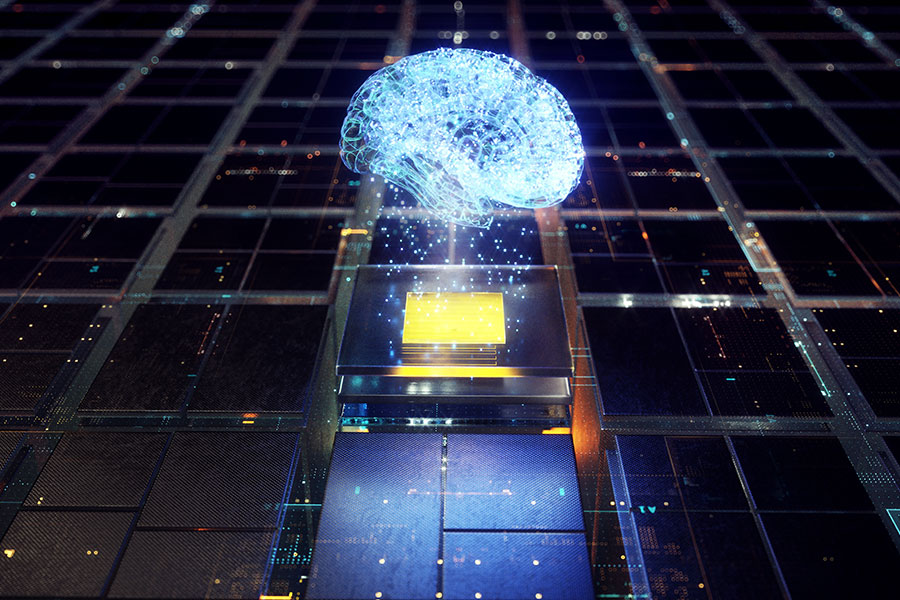
Chinese tech giant Baidu’s founder and CEO Robin Li delivered a speech about feedback-driven innovation and its influence on China’s real economy at the 2022 Baidu Create event on January 10, saying creators are to usher in a golden decade for AI, reported tech media Pandaily.

Robin Li pointed out that the symbol of the fourth scientific and technological revolution is the deep learning algorithm that would bring efficiency improvement and economic growth. Major innovations related to deep learning, including automated driving and intelligent dispatching systems in the fields of hydropower and energy, will have a great social impact, like inventions such as automobiles and the internet.
He emphasized the importance of self-reliance in the software sector, particularly in light of the key role software plays in providing a foundation for the application and commercialization of artificial intelligence.
He gave priority to discussing “feedback-driven innovation.” Baidu has a lot of practical experience in “feedback-driven innovation” in its business development.
For example, Baidu’s Kunlun artificial intelligence chips are very advanced because they have been optimized for Baidu’s search service for ten years. Baidu’s search service responds to billions of real users’ needs every day and conducts 1 trillion deep semantic reasoning and matching every day, which can provide the truest and most timely feedback, thus forcing the optimization of deep learning frameworks and chips, according to Pandaily.
Baidu has revealed orders from Apollo Go, its autonomous driving services platform, every quarter since a year ago. The large order volume means that it can get the most useful feedback. Baidu noticed from social platforms that web users in many places hope that the unmanned vehicle travel service can be more accessible, which means that people’s acceptance of automated driving is very high, and commercial operation may be faster than expected.
Baidu’s business scope covers chips, frameworks, models, and applications. From the high-end chip Kunlun, to the deep learning framework “PaddlePaddle,” and then to the large model “Wenxin,” there are key self-developed technologies that can generate various feedback at all levels.
Li also introduced Baidu’s influence on China’s real economy. First, the threshold for developing AI technology is lowering.
PaddlePaddle has gathered 5.35 million developers, served 200,000 enterprises and institutions, and created 670,000 models, which has built a prosperous deep learning ecology. It enables developers to build AI applications like building blocks. Software is necessary for innovation.
Second, AI empowers the development of the real economy. Robin Li regards intelligent transportation as an intelligent dispatching system that can control traffic flow through intelligent traffic lights, thus improving efficiency. Through the intelligent transformation of the transportation network, traffic efficiency can be improved by 15% to 30%. Baidu’s intelligent transportation scheme has been implemented in 63 cities. Li predicts that the intelligent transportation scheme can make China’s first-tier cities no longer need to restrict vehicle purchases before 2027, thus activating automobile use. Before 2032, the congestion problem can basically be solved by improving traffic efficiency.
Ups and downs like this will still happen one day in the AI field. The silver lining is that in the past year, AI has changed its direction both at the technical and commercial application levels, Li indicated.
The most representative change in business applications is automated driving. In the past, everyone thought L2 through L5 came step by step. But Robin Li believes that after L2 comes L4. Because it is difficult to define the accident liability of L3, it takes longer to popularize it. As of September last year, Baidu’s L4 automated driving service orders exceeded 1.4 million in more than ten cities, such as Beijing and Shanghai, and all unmanned commercial operations were opened in Chongqing and Wuhan, said Pandaily.
However, the challenges are great. The digital transformation of many fields in the real economy has not been completed, and digitalization itself has not brought about a significant improvement in efficiency. It will take time for intelligence to penetrate widely. Therefore, the commercialization of AI needs to be explored for some time.
At the same time, according to Chinese media outlet ChinaStarMarket, Baidu is cutting jobs and canceling year-end bonuses for some employees in its Intelligent Driving Group (IDG) as prospects for profits remain remote after years of investment. The layoff will affect employees in vehicle-road collaboration, intelligent network, and intelligent transportation business departments under the ACE unit(Autonomous Driving, Connected Road, Efficient Mobility), with a large proportion of job cuts.
(Greg Gao)
RELATED
READ MOST

No Data Yet~







